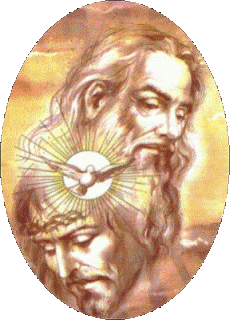“…Now the leaders wanted to kill Jesus for two reasons. First, he had broken the law of the Sabbath. But even worse, he had said that God was his Father, which made him equal with God.” (Jn 5,17-30). With this phrase, John the Evangelist sums up the conflict that Jesus faced with the Jewish authorities of his town and of his times (high priests, scribes, Pharisees, elders, etc.). A conflict that in the end issued in his passion, death and resurrection. Thus this phrase also introduces us to the celebration to the most holy week of the Christian calendar and specifically to the celebration of the Easter weekend.
He said that God was his Father: All the deeds of Jesus, all his words (parables), all his ministry together constitute good news for men and women of good will: the creator and God of the Old Testament is a compassionate and merciful Father “who takes no pleasure in the death of the sinner but desires that he be converted and live” (Cf. Mt 22,32-???), who “makes the sun rise on both good and bad people” (Mt 5,45), “who gives good things to people who ask” (Mt 7,10-11) and who – in Jesus – is the one who has come “to call sinners rather than good people to himself” (Mk 2,17).
Which made him equal with God: Jesus is the Son in the image and likeness of his Father. He is absolutely divine as well as profoundly and totally human. All his humanity is pure divinity. God’s perfection is realized in him, the perfection to which we are all called: “You must be perfect, just as your Father in heaven is perfect, compassionate and merciful, as the Father in heaven is compassionate and merciful” (Mt 5,48). Those who saw him, saw the Father (Cf. Jn 14,9).
He broke the law of the Sabbath: From his filial relationship with God, Jesus derived all the consequences for his own life and that of his disciples in all ages: We are all brothers (Cf. Mt 23,8), 4,11), with deeds, especially toward those who are most needy (Cf. Mt 25,31ff). With such certainty, he gave preference to his Father’s will, which consists in our loving each other (Cf. Jn 13,34) and he denounced and broke with a relationship with God that was only ritualistic, legalistic, external, cultic and sacrificial that pretended to honor and worship him while despising the less fortunate. For that reason, on many occasions, he spoke in that way, especially against scribes and Pharisees, who in their fulfillment of the law and their worship in the temple despised and avoided their fallen brothers (Cf. Lc 10,33ff):
- “You hypocrites! You give to God one tenth even of the seasoning herbs, such as mint, dill, and cumin, but you neglect to obey the really important teachings of the Law, such as justice and mercy and honesty.” (Mt 23,23).
- “Go and find out what is meant by the scripture that says: It is kindness that I want, not animal sacrifices” (Mt 9,13).
- “Leave your gift there in front of the altar, go at once and make peace with your brother” (Mt 5,24).
- “Whenever you did this for one of the least important of these followers of mine, you did it for me!” (Mt 25,40).
- “We cannot love God, whom we have not seen, if we do not love others, whom we have seen (1 Jn 4,20; 1 Jn 3,15).
- “You should have had mercy on your fellow servant, just as I had mercy on you”(Mt 18,33).
For that reason, Easter in Holy Week is the commemoration of the Son’s life surrendered completely to the Father’s will: for the establishment of God’s kingdom, as we see ourselves as children of the same Father loving each other as brothers and sisters.
For this reason also, the reading of the Gospel accounts of the passion and death are the realization of the unjust process carried out against Jesus as a consequence of his options: to suffer and die in the same way (Cf. Jn 1,29; Acts 8,32) and due to similar conflicts and motives for which centuries earlier the prophets of his people gave their lives and for those who today continue to die: all those who – like Jesus – offer their life to the cause of truth, of life, solidarity, justice, liberty, peace.
For all that has been said, Holy Week is the commemoration and realization of the life, passion, death and resurrection of the One who understood and taught us that life is won when it is lost, is given as a donation, surrendered, yielded, spent in favor of others and is lost when hoarded selfishly (Cf. Mt 16,25).
Today, as disciples of Jesus, we can experience Holy Week as the remembrance of some past deeds that have little relationship with our present, or as the remembrance of occurrences that today are realized in our own life and in the life of a world that needs men and women who are able to wash the feet of their brothers, sharing the same bread, bearing the cross of others, washing the face and consoling those who suffer the most, in order to provide a space for abundant life (Jn 10,10), resurrection life.

No comments:
Post a Comment